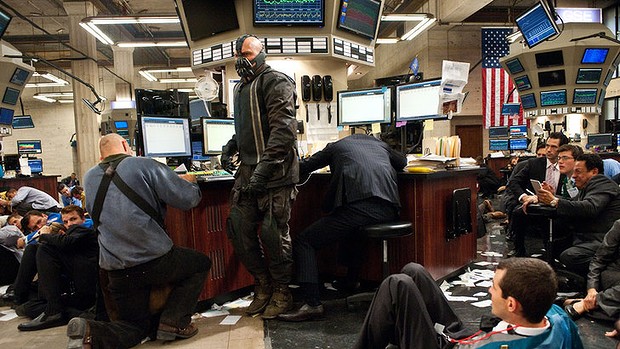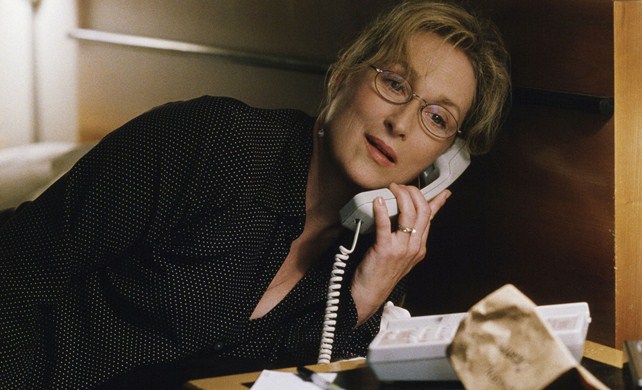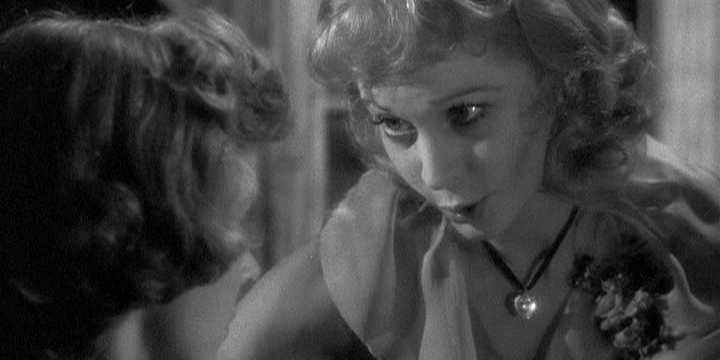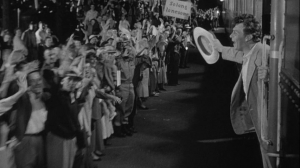
The Matrix’s obsession with binaries of costume, group size, violence, sets and props seems to establish it as a rudimentary us-versus-them fantasy of anti-authoritarianism. But unsettling visual parallels linger between its ostensible heroes and villains, driving us to ask if the rebels might not be shackled to enacting a violence as fascistic as the system they are fighting.
The movie aligns us early to both Neo and Trinity by pitting them separately against similar groups of uniformed pursuers. Cornered respectively in a fleabag hotel and in a maze of sterile office cubicles, Trinity and Neo each find themselves approached by policemen and Agents, who enter these scenes sharing space in shots with at least one similarly uniformed colleague (be it police uniform or Agent’s Secret Service suit). Through this visual grouping and their uniforms’ associations with legal authority, the policemen and Agents lose much of their individuality, seeming to hail from a vast conspiratorial network further implied in the Agents’ earpieces. We thus identify with the outnumbered individual in these scenes as they attempt to escape their omnipresent foes and unappealing environs.
As if to confirm our suspicions, the Agents and rebels proceed to subject Neo’s body to dichotomous extremes of physical violence, with contrasting resources at their disposal. When Agent Smith’s deal with Neo falls through, Neo’s mouth magically seals upon a cutaway from the smirking Smith, suggesting the Agent’s gleeful, inexplicable power to silence Neo. His colleagues pinning Neo down, Smith then activates a metal capsule that grows into a spindly, leg-splaying metallic virus that clambers into Neo’s navel as he struggles. By contrast, the rebels’ equipment is relatively low-tech, and their violence harmless: the device Trinity uses to extract the virus is ramshackle and ungainly, and the interior of Morpheus’ ship looks like an industrial basement with old barber’s chairs. Furthermore, the weapons-free fight between Morpheus and Neo, involving parries and near-miss fists, is benignly instructional, while Neo’s failure to leap across buildings is met merely with a rippling asphalt trampoline upon first impact, even as the blunt second impact reiterates the stakes of failure against their enemies. We are thus conditioned to continue seeing the rebels as underdogs and enablers against the oppressive Matrix and its Agents.
However, multiple images within Neo and Trinity’s subsequent rescue of Morpheus invite a troubling comparison between the Agents and themselves. “Dodge this,” says Trinity before shooting an Agent in the head, adopting the very pose taken by a simulacrum of Agent Smith earlier in Neo’s training. (more…)






![A Face in the Crowd: [Silence]](http://www.againstthehype.com/wp-content/uploads/2010/08/vlcsnap-2010-08-27-17h00m33s168-300x168.png)
